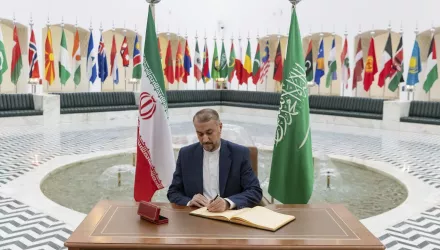Summary
The Preventive Defense Project conducted the latest in its series of Washington WMD Workshops entitled "Iran Plan B Design" on May 22, 2006. The purpose of the Workshop was to collect the best thinking on the design of a plan for dealing with Iran's nuclear program should diplomacy fail and the Iranians continue on the path to nuclear capability.
While it is important for the United States and its international partners to design Plan B now, it is premature to abandon the current diplomatic course, Plan A.
For one thing, Iran's known nuclear program is several years away from being able to produce its first bomb's worth of fissile material. Unlike the case of North Korea which has already obtained fissile material and is producing more, there is time to let diplomacy with Iran play out.
Second, and again unlike North Korea, the Iranian government has exhibited at least a smidgen of sensitivity to international opinion and to the possibility of further isolation and punishment if it persists, and acceptance and trade if it stops – i.e., to diplomatic carrots and sticks.
Third, while the cat-and-mouse diplomacy led by the EU3 has not led to conclusive results, it has caused Iran to slow the progress of its uranium enrichment program through intermittent suspensions. It is not yet time to switch to Plan B. But it is time to devise Plan B. And the time available for diplomacy is only valuable if it is used effectively.
Please see the pdf below for the full text of this report:
Carter, Ash and Dr. William J. Perry. “Plan B for Iran: What if Nuclear Diplomacy Fails?.” Preventive Defense Project, Belfer Center, September 10, 2006






